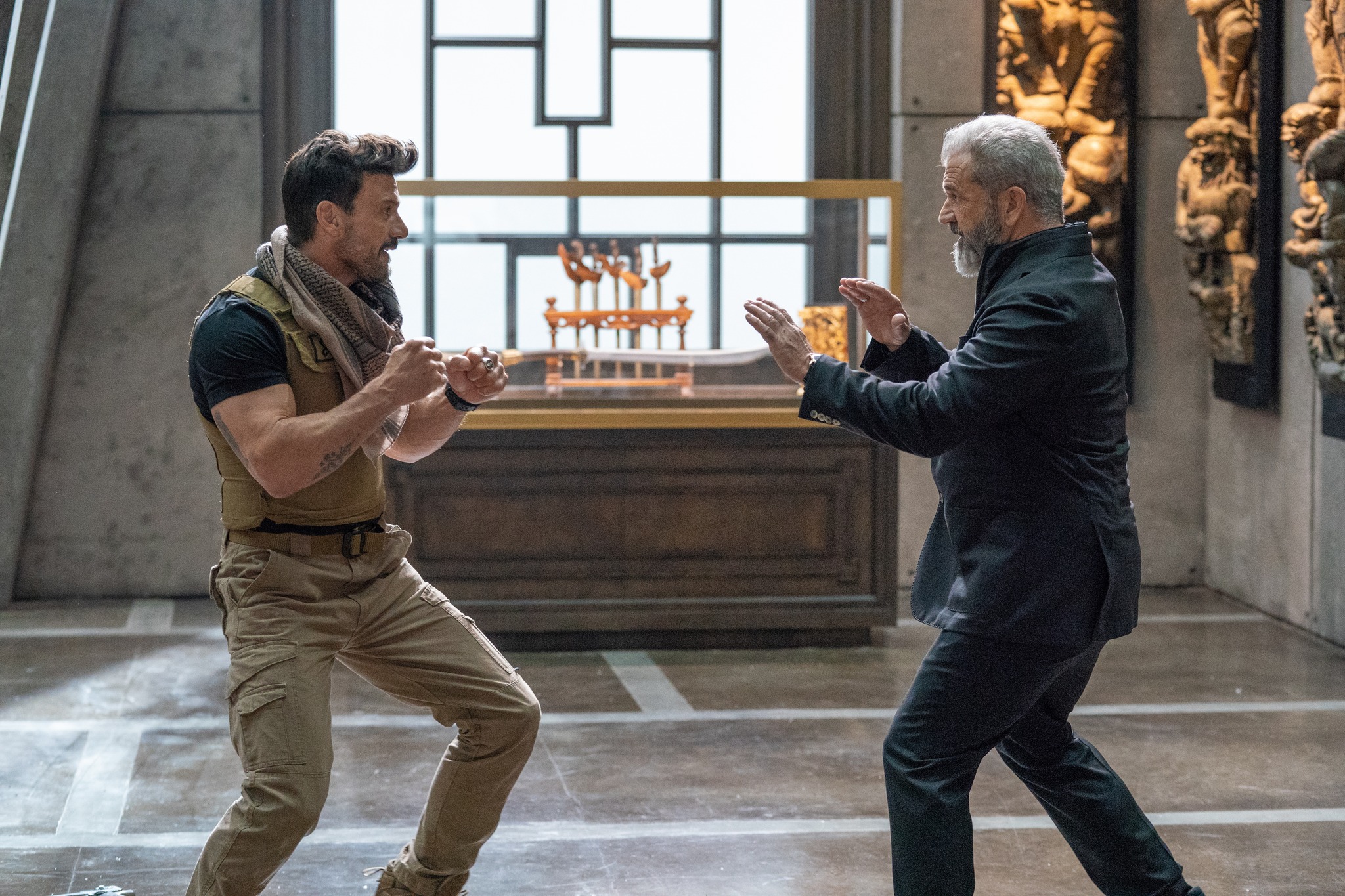Boss Level (2020)

“Boss Level,” directed by Joe Carnahan and released in 2020, is a dynamic and entertaining film that reinvigorates the time-loop genre with a blend of action, humor, and inventive storytelling. Starring Frank Grillo, Mel Gibson, and Naomi Watts, the film presents a thrilling and engaging narrative where the protagonist must navigate a series of deadly challenges while reliving the same day repeatedly. With its unique premise and high-octane sequences, “Boss Level” stands out as a notable entry in the realm of action cinema.
The film centers around Roy Pulver (Frank Grillo), a former Special Forces operative who finds himself trapped in a relentless time loop. Each day, Roy is forced to relive the same 24-hour period, which culminates in his death at the hands of a variety of assassins. The repetition of his death becomes a source of frustration and urgency as he tries to break free from the cycle.
The central conflict of “Boss Level” begins when Roy discovers that the time loop is connected to a secretive and sinister organization led by the villainous Colonel Ventor (Mel Gibson). The organization’s experiments with time manipulation and their nefarious plans are central to the film’s plot. Roy’s quest to escape the loop and uncover the truth behind the organization’s motives is intertwined with his personal struggles and relationships.

As Roy navigates the increasingly dangerous scenarios each day, he encounters a range of characters, including his estranged wife, Claire (Naomi Watts), and a variety of quirky and dangerous adversaries. The film’s setting alternates between the gritty urban environment and high-tech facilities, contributing to the dynamic and visually stimulating experience.
“Boss Level” explores several themes through its engaging narrative. One of the central themes is the concept of redemption and personal growth. Roy Pulver’s journey through the time loop serves as both a physical and emotional odyssey. As he faces his own mortality repeatedly, he is forced to confront his past mistakes and relationships, particularly his relationship with his son and his ex-wife.
The film also delves into the theme of perseverance and resilience. Roy’s repeated deaths and the seemingly insurmountable obstacles he faces highlight the importance of determination and adaptability. His ability to learn from each iteration of the loop and apply that knowledge to overcome challenges is a testament to his character’s strength and resourcefulness.
Another prominent theme is the nature of control and manipulation. The time loop serves as a metaphor for the ways in which individuals can be controlled or manipulated by external forces. The film explores the power dynamics between Roy and his antagonists, as well as the larger implications of the time loop on his sense of agency and autonomy.
Frank Grillo delivers a standout performance as Roy Pulver, bringing a mix of intensity, charisma, and humor to the role. Grillo’s portrayal of Roy captures the character’s frustration, determination, and vulnerability. His ability to convey both the physical and emotional aspects of the role adds depth to the film and makes Roy a relatable and engaging protagonist.

Mel Gibson’s portrayal of Colonel Ventor is a key element of the film’s tension. Gibson brings a menacing and charismatic presence to the role, effectively embodying the character’s ruthlessness and cunning. His performance adds a significant layer of complexity to the film’s antagonist.
Naomi Watts’s role as Claire contributes to the emotional depth of the story. Watts portrays Claire with a mix of strength and empathy, highlighting her character’s personal connection to Roy and her own struggles. Her performance enhances the film’s exploration of relationships and redemption.
The supporting cast, including actors such as Michelle Yeoh and Will Sasso, also contributes to the film’s dynamic character interactions. Their performances add a range of personalities and skills to the story, enriching the overall experience.
Joe Carnahan’s direction is characterized by its high-energy and visually engaging style. The film’s cinematography captures the intensity of the action sequences and the intricacies of the time loop. Carnahan’s use of fast-paced editing, dynamic camera work, and practical effects enhances the film’s sense of urgency and excitement.

The action sequences in “Boss Level” are a highlight, with choreographed fight scenes, car chases, and shootouts that are both visually impressive and thrilling. The film’s use of special effects and CGI is well-executed, contributing to the overall spectacle and immersive quality.
“Boss Level” has garnered attention for its innovative approach to the time-loop genre and its blend of action and humor. The film’s unique premise and execution have set it apart from other entries in the genre, offering a fresh take on a familiar concept. The performances by Frank Grillo and Mel Gibson, along with the film’s inventive storytelling, have contributed to its appeal and success.
The film’s exploration of personal growth and redemption, combined with its high-octane action, has resonated with audiences and critics alike. “Boss Level” stands as a notable example of how the time-loop genre can be adapted and reimagined to deliver an engaging and entertaining experience.
In conclusion, “Boss Level” (2020) is a thrilling and inventive action film that revitalizes the time-loop genre with its engaging narrative and dynamic performances. Frank Grillo’s compelling portrayal of Roy Pulver, combined with Joe Carnahan’s energetic direction and the film’s high-stakes action sequences, makes for an entertaining and memorable cinematic experience. The film’s exploration of themes such as redemption, perseverance, and control adds depth to the story, while its unique premise and execution set it apart from other films in the genre. “Boss Level” is a standout entry in action cinema, offering a fresh and exciting take on the concept of time loops and the challenges of overcoming personal and external obstacles.











